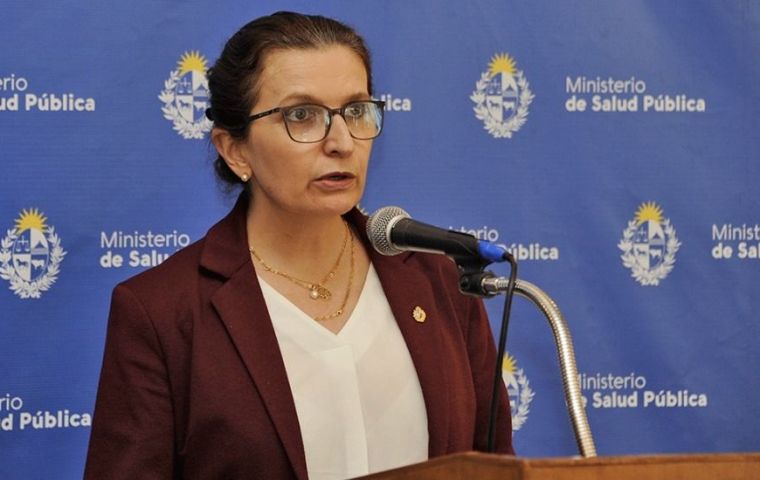MercoPress. South Atlantic News Agency
Uruguay launches app to involve people in fight against dengue-spreading mosquito
 “Uruguay has a culture of using networks and managing information through smartphones” that can be useful in this case, Rando stressed
“Uruguay has a culture of using networks and managing information through smartphones” that can be useful in this case, Rando stressed Uruguay's Health Ministry Friday launched the application “Mosquito Alert” and urged the population to use it so that authorities can better fight the Aedes Aegypti mosquito which is behind the spread of dengue, zika, and chikungunya, it was reported in Montevideo.
The device helps track the mosquito breeding sites so that further action can be taken, it was explained. Users are required to report from their cell phone, through a photo, the presence of mosquitoes or breeding sites in public spaces so that sanitary teams can take proper action. The initiative represents a “milestone” in the fight against mosquito-borne diseases, Health Minister Karina Rando said. “With this application, we empower citizens to help us control and have clearer information on where the vector” of the diseases is located,“ she added. ”The most important part is that citizens are going to be part of the control of this vector, which is the Aedes Aegyti mosquito.“
”Uruguay has a culture of using networks and managing information through smartphones“ that can be useful in this case, Rando stressed. ”If each of the children and young people downloads the app and starts reporting the mosquitoes they find and the breeding sites they find in the country, a mapping is made to know where there are more mosquitoes and breeding sites,“ she also pointed out. ”It is an application that captivated children in other countries and we hope that this will be the case in Uruguay.“
The software was developed in Spain, and financed by the European Union and the Spanish government. It was brought to Uruguay by Spanish Ambassador Santiago Jiménez Martín and then ”in a simple phone call we had all the support to adapt the application to Uruguay,“ Rando stressed.
The Spanish ambassador pointed out that the arrival of the program in Uruguay had the economic support of the embassy, which allocated the funds ”destined to scientific diplomacy.“
The application is available for Android cell phones through Google Play or for IoS through the App Store.
According to the latest sanitary report released Thursday, there were 848 active cases of dengue fever in Uruguay between autochthonous and imported ones. ”The most important thing is not that figure, but the number of new cases per day that has been decreasing. There were times when we had 50 or 100 new cases per day, and yesterday there were around 15,“ Rando noted.
”This trend is expected to continue as long as there are low temperatures,“ she went on. However, Rando asked the population not to be caught off guard because cases ”will increase again” with the return of warmer weather.




Top Comments
Disclaimer & comment rulesCommenting for this story is now closed.
If you have a Facebook account, become a fan and comment on our Facebook Page!